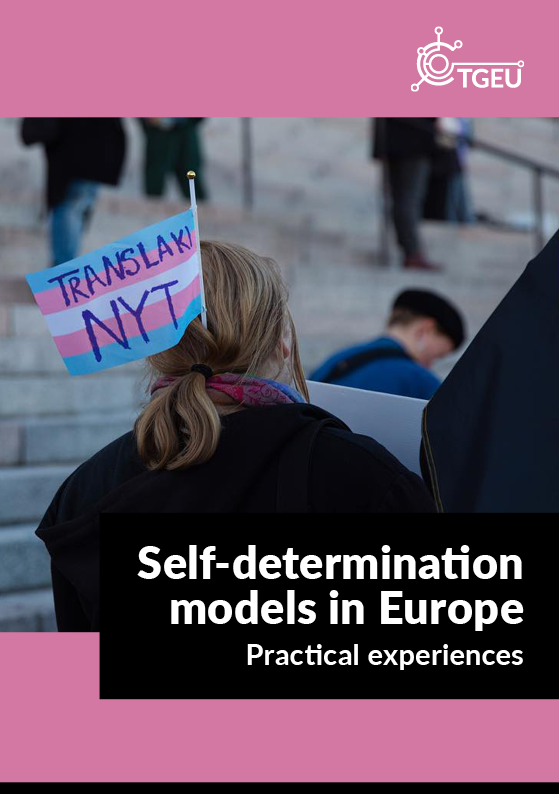Legal gender recognition

Legal gender recognition allows trans and non-binary people to change their name or gender marker to correspond with their identity.
Not every trans or non-binary person may want to do this. However, the ability to legally change one’s gender marker or name is essential. It ensures a life with dignity and access to many services. TGEU supports and works for legal gender recognition based on self-determination.
What is legal gender recognition (LGR)?
Legal gender recognition (LGR) is the process of changing official documents to match a person’s identity. This can mean changing the gender marker or name, or both, on legal documents. This can include passports and other official identification.
These processes are much more than just an administrative act, though. They are essential for many trans people to live a life with dignity and respect. They can provide gender euphoria. But, it can also be important to access to essential services and safety.
What does TGEU do?
TGEU works to ensure that every person in Europe and Central Asia can access legal gender recognition based on self-determination. Self-determination is also sometime called self-ID. It means that a person has the right to determine their gender without any third party intervention. This means no psychological or medical intervention can be requested.
On top of this, TGEU advocates for processes that are:
- Quick
- Accessible
- Transparent.
This includes for youth, migrants, and refugees, who must have equal access.
We actively work with governments and local organisations to advocate for better laws. We also perform research and legal analysis, and raise awareness through campaigns.
Why is legal gender recognition important?
Access to legal gender recognition can have a major impact on your life. Every time you fly, get a new job, or even pick up a parcel from the post office, you’re asked for official identification.
An ID that does not reflect your gender or has the wrong name can cause dysphoria. However, if how you present is different than your ID, it can also lead to much greater issues. This can impact your access to essential services. At worst, it can actually lead to discrimination or harassment.
How easy is it to legally change your gender marker?
Access to legal gender recognition varies greatly across different countries. However, it is often a long and confusing process. In some countries, it is not possible at all.
Further, some countries that allow legal gender recognition have inhumane requirements. Some of these requirements include:
- Diagnosis of a mental disorder
- Sterilisation
- Divorce.
It can also be harder to access legal gender recognition for certain people. This is often the case for non-binary people, youth and children, and more.
However, some countries are changing their laws for better legal gender recognition. You can find out more about your country on our Trans Rights Map.
What is gender self-determination and why does it matter?
Gender self-determination makes changing your gender marker and name on official documents an easy administrative process. The change is based on the person’s self-determined gender identity. No third party is required. Self-determination is also often referred to as self-identification, or self-id.
Self-determination is important as it recognises trans people as the sole authority on their gender. No one can decide if someone is “trans enough”.
Main information
Press RELEASEs
see morePUBLICATIONS
see moreLegal Action
see moreCzech Court Maintains Mandatory Sterilisation for LGR
read moreTGEU, ILGA-Europe, and IGLYO Send Letter to German Ministers
read moreSwiss Parliament Passes Legal Gender Recognition Based on Self-determination
read moreJoint Statement: Civil Society Welcomes Ground-Breaking German Constitutional Court Demand for a New Regulation of Sex Registration
read more









